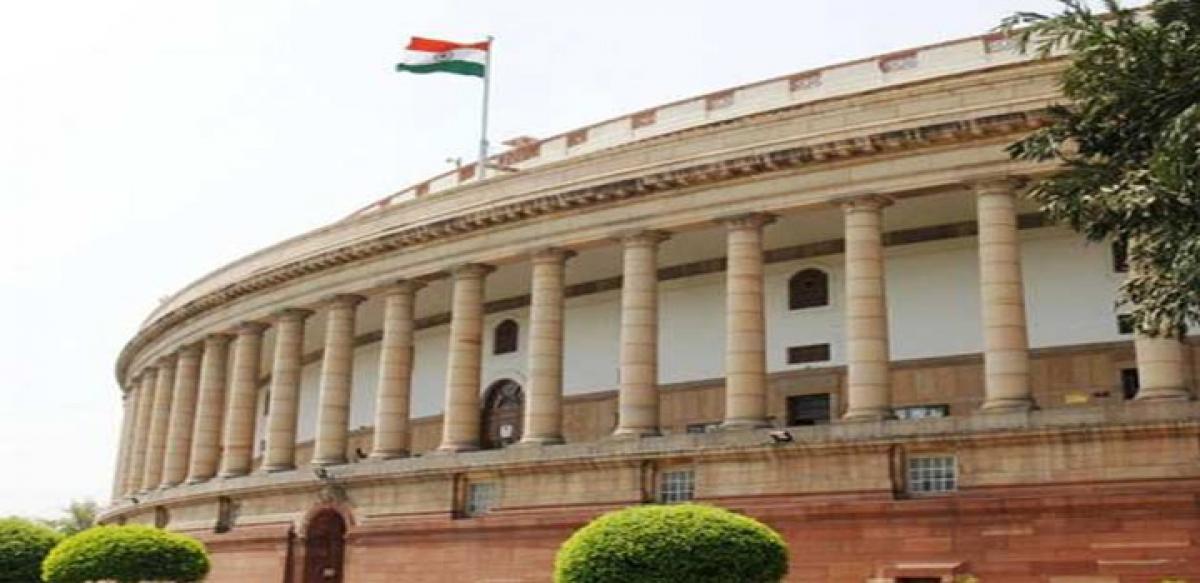Live
- Mallikarjun Kharge sought time to meet PM Modi to explain the Congress manifesto
- Tesla's Humanoid Robot 'Optimus': What to Expect and Its Potential Impact
- CBDT extends deadline for filing Form 10A/10AB by taxpayers to June 30
- Senior Congress Leader Maridu Krishna Files Nomination as MLA Candidate in Nuzividu Constituency
- TN: Five district collectors questioned by ED in illegal sand mining case
- Patsamatla Dharmaraju files 4th set of nomination papers as Jana Sena candidate for Ungutur Assembly Constituency
- Cong accepted country's division on basis of religion: PM Modi
- TN Police targeting me in Rs 4 cr cash seizure case, says BJP leader Nainar Nagendran
- Former Zimbabwe cricketer Guy Whittall injured by leopard
- Fatal Fire Erupts In Hotel Near Patna Junction, Claims Six Lives
Just In

The Central and the State governments are bracing up for new budgets. Parliament and State legislatures will be meeting for their budget sessions. But, all this has become a mere ritual over a period of time as the executive has to receive the constitutionally stipulated legislative sanction for incurring any expenditure.
The Central and the State governments are bracing up for new budgets. Parliament and State legislatures will be meeting for their budget sessions. But, all this has become a mere ritual over a period of time as the executive has to receive the constitutionally stipulated legislative sanction for incurring any expenditure.
Neither the executive nor the legislature seems to be seriously taking up the process of formulating and passing the budget. First, there is always a massive variance between what is budgeted and what is actually spent at the end of the financial year.
A look at the Budget Estimates (BE), Revised Estimates (RE) and the actuals would reveal a pattern of revenue and expenditure often not meeting the budgeted estimates. No one is asking for a mathematical precision as the financial exigencies are obvious. But, the budget figures are often inflated to grab the media headlines. Thus, the credibility of the budget is deeply eroded at the altar of political populism and bureaucratic unaccountability.
There are a number of instances of excess expenditure or reallocation of expenditure not going for legislative approval. Thus, the constitutional provisions are also often subverted. Except for some structured discussion with representatives of a few sections of society by the Finance Minister, the civil society hardly has any say. Budget is an official statement of estimated revenue and expenditure in the next financial year.
Though the spending is planned for the entire year, the reports of Comptroller and Auditor General (CAG) reveal that the budgeted expenditure is largely spent in the last quarter and at times a significant proportion of it is disbursed in the last month of the financial year itself.
This seriously undermines the development process. For instance, if some amount is allocated for afforestation programme, these funds will be of no relevance if they are not released well before the onset of monsoon. Experience suggests that it is not so most of the time.
Budget suffers from incrementalism. The budget exercise is often reduced to adding few figures to the last year‘s budget to arrive at the new budget estimates. Fresh thinking and fresh appraisal are often lacking. The proposal to present Zero budget which entails looking at the fiscal needs of different departments afresh independent of the last year’s allocations should be welcomed. But, such an exercise should begin in the right earnest well in advance.
Amidst pandemonium, budget estimates are often guillotined. Neither the nation nor the Parliament knows what is there inside in the voluminous budget documents. At least in Parliament, there is a healthy practice of Parliamentary Standing Committees scrutinising the budget proposals. There is no such practice in the State legislature.
The CAG reports on the budgets reveal that a large proportion of public spending often does not even go through legislature as the funds are directly transferred to implementation agencies. The legislative debates on budgets are on partisan basis rather than any serious economic appraisal.
The emergence of new public finance practices like public private partnerships often end up compromising the constitutionally mandated process of legislative scrutiny of public expenditure. Indian democracy would be subjected to great disservice if the parliamentary and legislative unresponsiveness over budget process is not attended to.

© 2024 Hyderabad Media House Limited/The Hans India. All rights reserved. Powered by hocalwire.com







